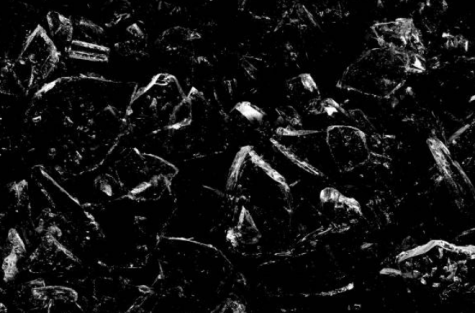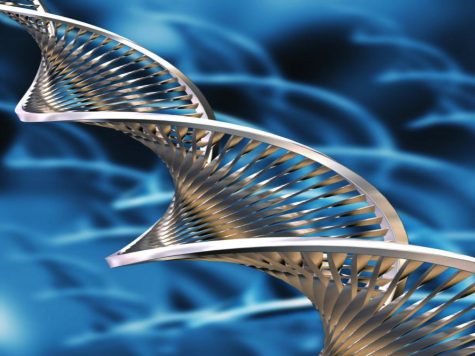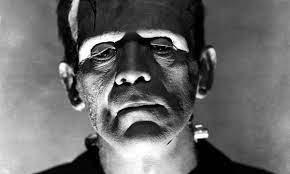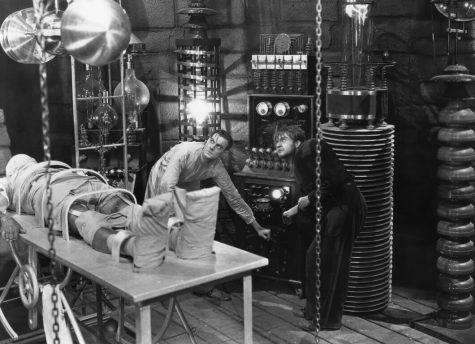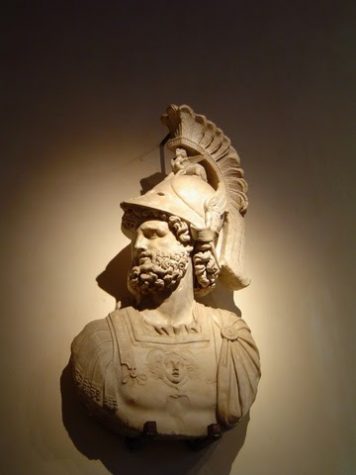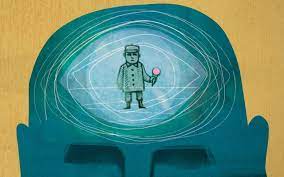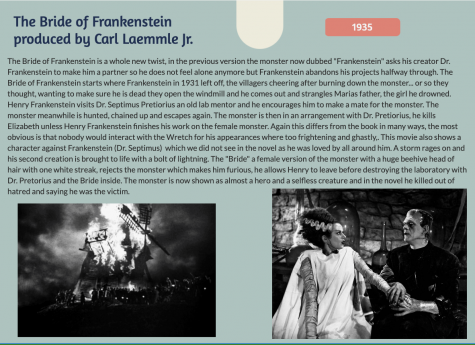Instinct and Curiosity in Frankenstein

The novel Frankenstein by Mary Shelley is often thought to be a thrilling horror story, but in reality provides much more than that. Frankenstein provokes thought rather than simply feeling, logos and ethos rather than only pathos. The characters artfully crafted by Mary Shelley act on human nature, are guided by emotions and instinct, and are affected by dynamics in the outside world. Victor Frankenstein experienced a relatively happy early childhood which was later clouded by the death of his mother and the arrival of more siblings: two younger brothers and an adopted sister, Elizabeth. He was fascinated with science from a young age but did not receive much guidance from his parents. Victor left Geneva, his hometown, to pursue his dreams in Ingolstadt, which later became the birthplace of his famous creation, known as the Wretch. Upon witnessing his own monster come to life, Victor flees his apartment and leaves the Wretch entirely alone to fend for himself. Victor, still scarred by the unresolved losses of his childhood and not ready to be a father, unknowingly set in action a catastrophic series of events. The Wretch embarks on a journey of self-discovery, particularly unique as he is not really part of anything in nature; he was crafted by man, not by evolution, and is the sole member of his ‘species.’ The Wretch is corrupted by society, seen as a terrifying monster by almost all who meet him, causing him to ponder over his creator and his existence. After speaking with Victor on several occasions and being denied the most basic of companionship, the Wretch resolves to make Victor’s life a living hell. He is overwhelmed with his senses, his emotions, his uncontrollable humanness. Ultimately, the Wretch feels terrible remorse for his actions and vows to take his own life, jumping out of the open window of a ship onto a raft of ice. The characters of Frankenstein are influenced by their interactions with one another and their internal struggles, mirroring each other and their environment. Frankenstein focuses on the principles that our behavior comes down to: the basis of instinct and learning, that which evolution has instilled in us is both a blessing and a curse in our complicated modern world.
In Frankenstein, both Victor and the Wretch become bitter, corrupted by society but in different ways. Victor is disheartened by his humanness, whereas the Wretch is disheartened by his non-humanness. Victor makes mistakes, is driven by a feverish dream of creating life, compelled by his emotions and interests. Victor grows to despise his curiosity and is eventually taken over by rage and a passion for revenge. Victor is accepted by his family and society, yet feels separate and unworthy of their love. The Wretch, too, is curious. The Wretch is burdened by the initial disgust and terror humans experience when setting eyes upon him; an evolutionary advantage to avoid the unknown until more information may be acquired. These humans, however, have no reason to investigate and are driven by fear, especially in the moment. “Was I, then, a monster?” (Shelley 101). The Wretch has come to the realization that he is not a part of humanity or even the natural world, as he is the creation of mankind and not the result of evolution and natural processes. He inquires as to why he was created, why he experiences his particular emotions, and how other creatures cope and express their own emotions. “If such lovely creatures were miserable, it was less strange that I, an imperfect and solitary being, should be wretched. Yet why were these gentle beings unhappy?” (91). The Wretch wonders about the complexity of humans, proving him to be a high functioning being, similar to humans in many ways and yet looked down upon as a monster. It is a feeling that we, animals created through natural processes, cannot fully sympathize with.
Despite its role in our survival, our bias isn’t all that accurate. Everyone possesses at least some prejudice, although many seek to conceal it. Our prejudice and instinct come with benefits and drawbacks to our survival. We are enabled and disabled by all of our senses and instincts. Delacey, an old man in a cabin whom the Wretch speaks with, is blind, which evidently comes with drawbacks. But being blind gives him the ability to do what no other can; he can speak, calmly, with the Wretch. “‘If you will unreservedly confide to me the particulars of your tale, I perhaps may be of use in undeceiving them. I am blind and cannot judge of your countenance, but there is something in your words which persuades me that you are sincere. I am poor and an exile, but it will afford me true pleasure to be in any way serviceable to a human creature’” (115). The blind old man in the cottage lacks the sense of sight and therefore does not run from the Wretch with the same fear as everyone else. He believes the Wretch to be human and is able to take in more information about the Wretch because the sense of sight, which is supposed to aid us in gathering information, is not there to hinder him. Our senses are very important to our survival, however, and play a role in feeling ‘alive’. “By degrees, I remember, a stronger light pressed upon my nerves, so that I was obliged to shut my eyes. Darkness then came over me and troubled me, but hardly had I felt this when, by opening my eyes, as I now suppose, the light poured in upon me again” (84). The Wretch, as he is awakening, is overwhelmed by his senses. He is experiencing both the dark and the light for the first time all at once and is obligated to shut out his overpowering senses. But when he does so, the lack of sense is also unbearable. The Wretch is essentially a newborn, and therefore needs a protective figure which he does not receive, resulting in much of the conflict that later occurs. The parent helps to teach the youth about the world, and additionally limits the curiosity to a safer level, as newborns have not yet learned much in the way of self-restraint. Victor, the Wretch’s ‘parent’, flees at the sight of his creation, leaving the Wretch all alone and without proper nurture. The Wretch is also not fully human and looks terrifying, so is unable to have that ‘village’ needed to raise him. The lack of companionship alone could plunge one into insanity.
Humans generally need a reason to follow curiosity, and therefore many who see the Wretch throughout the book have no reason to inquire further into him, and so they don’t. But there are also the factors of lack of sense, as seen with Delacey, natural variation, and much more present in decision making associated with the unknown, which is also included in the novel. Mary Shelley introduces a character who only appears at the beginning and end of the novel to accomplish this. Walton, like Victor, is an avid pioneer, but in a different area. Walton is fascinated by the north and geographical exploration, and embarks on a journey north. Victor and Walton cross paths when Victor’s sled falls into the water in desperate pursuit of the Wretch. Unlike Victor, Walton is more cautious about his curiosity and less keen to risk the lives of those around him to pursue his desires. Victor, before dying aboard the ship, tells Walton the story of the Wretch. After Victor’s death, Walton encounters a figure standing over the body at nighttime. As the figure attempts to flee, Walton realizes that it is the Wretch and calls on him to stay. Walton, after talking to Victor, has a reason to talk to the Wretch. He also has information about him, and any information is more tolerable to the human mind than nothing at all. “Never did I behold a vision so horrible as his face, of such loathsome yet appalling hideousness. I shut my eyes involuntarily and endeavoured to recollect what were my duties with regard to this destroyer. I called on him to stay” (194). The Wretch attempts to flee when he sets eyes upon a human for he has experienced nothing but cruelty from them. Walton knows of the Wretch’s murders and Victor’s side of the story, but he is driven now by curiosity, or as it seems he manually overrides his fear instinct with interest in the Wretch. He is aware that the Wretch has killed many and could potentially kill him, but the fact that he knows what this form standing before him provides a bit of comfort or at least some glimpse into the unknown.
Another distinctly high-functioning feature of certain animals is the ability to feel regret or guilt over one’s actions. The Wretch has the ability to feel very human emotions. “The light of that conflagration will fade away; my ashes will be swept into the sea by the winds” (198). The Wretch realizes his misdeeds; realizes, like Victor, that the quest for revenge has not fulfilled his soul whatsoever. In the same manner, as the Wretch came to be, he wishes to die with fire and water; an existence beginning and ending and full of contradiction. The Wretch and Victor are full of contradiction that makes sense in the natural world and are complex characters. They possess both loathsome and attractive attributes and are deeply affected by their environment. There is no central antagonist in Frankenstein; it is a story crafted and based around the flaws in the nature of humans. The Wretch is not solely an evil thing, and the evil in him comes from the flaws in society and the flaws in Victor’s experience of humanity. These ‘flaws’ are not inherently flaws, but experiences that have shaped the way Victor behaves. He experienced the loss of his mother and less attention with the arrival of his siblings. He is therefore is inclined, inadvertently, to give the Wretch less attention, resulting in a similar sentiment of isolation. Walton, Victor, and the Wretch all feel separate to a certain degree, and crave companionship.
The Wretch contemplates concepts such as death. He is opposed to the idea of Victor killing him for the majority of the book, for how could a creator kill their own creation? In other parts of the novel, the Wretch curses upon his life on Earth and despises his creator. “‘Hateful day when I received life!’ I exclaimed in agony. ‘Accursed creator! Why did you form a monster so hideous that even you turned from me in disgust?” (110). The Wretch’s feelings are mirrored in nature, too. “Nature decayed around me, and the sun became heatless; rain and snow poured around me; mighty rivers were frozen; the surface of the earth was hard and chill, and bare, and I found no shelter” (119). It is although nature itself is disgusted by the Wretch, and yet it is able to sympathize with him, much like Walton at the end of the novel. The description of nature is given as though the Wretch is separate, even an onlooker, to the rest of the world and the happenings in nature.
Humans. We are animals; we are not above the rest of the animal kingdom, only different. While we do sustain some elements of instinct, such as fear, we do not possess the same amount of instinct as much of our living brethren. We have developed emotions; powerful in their effects but even more powerful in what they compel us to do. Fear and curiosity; not opposites, but rather forces that are in constant flux. Our senses feed into our behavior, determining whether the organism is forced onwards with burning curiosity or repelled by fear. Often in the moment, at the first sight of something alien and strange, fear is proven the victor. Then curiosity may take hold, allowing us to gather more information about the foreign object/animal. These emotions evolve from the environment; therefore we are wholly dependent on our conditions. In the idea of nature and nurture, nature is ultimately dependent on nurture, not directly but over generations, through the struggles and triumphs of our ancestors, those put in action by the environment. Mary Shelley’s Frankenstein is built along the actions and instincts of humans, the way we react and change to fit our environment, and the way we perceive the world. Curiosity exists in part to make up for what we lack in instinct, it compels us to learn more about the world around us and thus better our chances of survival.
